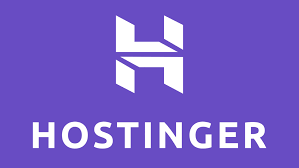
Understanding Its Importance and Implications
what is YMYL in SEO, In the world of search engine optimization, maintaining and raising your website’s ranks requires keeping up with algorithm changes and comprehending the subtleties of search engine rules. One important idea that is frequently brought up in this context is YMYL, or “Your Money or Your Life.” Google came up with this term to describe online content that has the potential to have a big impact on someone’s happiness, health, financial security, or safety in the future. This blog post will explain what YMYL is, why it’s important for SEO, and how to optimize your content to adhere to these rules.
What Is YMYL?
Any webpage or material that has the potential to have a major negative impact on a reader’s wellbeing is considered YMYL content. Since there are a lot of stakes involved, Google evaluates such content thoroughly. YMYL content examples include:
- Financial Information:
Pages that offer guidance or details on banking, loans, investments, taxes, retirement planning, and other financial issues.
- Medical Information:
Content about illnesses, drugs, mental health, diet, or physical fitness.
- Legal Information:
Pages that provide legal counsel, legal information, legal procedures, or legal issue guidance.
- Safety Information:
Anything that talks about crime, emergency preparedness, safety, or any other subject where a mistake could cause bodily injury.
- News and Public/Official Information:
Public information or news items that have the potential to influence decision-making, public opinion, or society at large.
Why Does YMYL Matter in SEO?
When it comes to YMYL subjects in particular, Google strives to deliver the most dependable, accurate, and trustworthy information to its consumers. Misinformation in these areas can have serious repercussions for consumers, including money loss, health concerns, and legal troubles. Because of this, Google’s algorithms and human raters examine YMYL content more closely, necessitating that content authors uphold strict criteria of veracity and correctness.
Role of E-A-T in YMYL Content
What Is E-A-T?
E-A-T is an abbreviation for Expertise, Authority, and Trust. Google employs the following standards to evaluate the caliber of YMYL content:
- Expertise:
Someone with extensive expertise in the field should be the one creating the article.
- Authoritativeness:
Both the website and its content ought to be acknowledged as authoritative sources of knowledge in the industry.
- Trustworthiness:
Transparency, accuracy, and dependability are required from the content.
Why E-A-T Matters for YMYL Content
It is imperative to have strong E-A-T when dealing with YMYL content due to the high stakes involved. To make sure that the content on YMYL pages is reliable and authentic, Google depends on E-A-T. It is crucial to concentrate on E-A-T while producing YMYL content because websites that don’t adhere to these guidelines run the danger of receiving worse rankings or even fines.
How to Optimize YMYL Content for SEO
1. Establish and Showcase Expertise
- Qualified Authors:
Make sure the people writing or reviewing your content have the necessary training and expertise. This may entail hiring certified healthcare specialists to write or edit the articles if they deal with medical topics.
- Author Bios:
Provide thorough author biographies that showcase each writer’s training, work history, and subject-matter knowledge.
- Detailed and Accurate Information:
Give thorough, well-researched material that shows a thorough comprehension of the subject.
2. Build Authoritativeness
- High-Quality Backlinks:
Obtain backlinks from respectable websites related to your field. This lets Google know that your material is respected and regarded as authoritative by other industry experts.
- Citations and References:
Cite credible research findings and references to support your statements. This helps you establish authority and improves the credibility of your material.
- Industry Engagement:
Engage in active participation in your industry by speaking with other professionals, writing in respectable publications, and attending conferences. As a result, you get credibility and authority in the industry.
3. Enhance Trustworthiness
- Transparency:
Communicate openly about your use policies, data gathering procedures, and business practices. Provide a clear description of your terms of service, privacy statement, and any other pertinent information.
- Secure Website:
To make sure your website is secure, use HTTPS. This tells Google that your website is reliable while still protecting user data.
- Accurate and Updated Information:
Make sure your content is accurate and up to date by reviewing and updating it frequently. Your credibility and rankings may suffer if you use outdated information.
4. User Experience
- Clear and Accessible Content:
Ensure that your content is easy to read and navigate. To improve readability, make use of bullet points, headers, subheadings, and other formatting elements.
- Mobile Optimization:
Make sure your website is adequately optimized for mobile consumers, as the use of mobile devices grows. This includes quick loading times, intuitive navigation, and responsive design.
- User Feedback:
Encourage user input and address it. This helps you make your content better and demonstrates to your readers how much you appreciate their feedback.
5. Comprehensive Content
- In-Depth Coverage:
Go over subjects in detail and address any queries users might have. This increases consumer satisfaction while also indicating to Google that your material is accurate and comprehensive.
- Multimedia Elements:
To improve your material, incorporate multimedia such as photos, videos, infographics, and more. These components can maintain user interest while clarifying difficult subjects.
- Engaging Content:
Make content that draws visitors in and motivates them to stay on your website longer. This can be tests, interactive features, or comprehensive manuals.
Role of Google’s Quality Raters
To assess the quality of search results, Google uses human quality raters. These raters follow rules that stress the value of E-A-T principles and YMYL content. Although their assessments have no direct bearing on results, they do offer input that aids Google in refining its algorithms.
What Quality Raters Look For
- Purpose of the Page:
determining the content’s primary goal and making sure it complies with user intent.
- Content Quality:
Evaluating the content’s completeness, accuracy, and utility.
- E-A-T Assessment:
Assessing the website’s credibility, authority, and level of knowledge in the content.
- User Experience:
Taking into account the complete user experience, which includes design, simplicity of use on mobile devices, and ease of navigation.
Adapting to Future Changes
It is expected that YMYL content and E-A-T principles will become increasingly important as Google continues to improve its algorithms. It’s essential to keep up with Google’s recommendations and industry best practices if you want to sustain and enhance the SEO performance of your website.
Continuous Learning and Adaptation
- Stay Informed:
To keep up with changes and trends, regularly read industry blogs, Google updates, and SEO news.
- Ongoing Education:
Make an investment in your team’s continuing education and training to make sure they have the most recent information and abilities.
- Regular Audits:
To find areas for improvement and guarantee compliance with the most recent requirements, conduct routine audits of your website and content.
YMYL (Your Money or Your Life) content is essential for search engine optimization, especially for websites that cover touchy and important subjects. Maintaining high search engine ranks and gaining the audience’s trust requires both an understanding of and use of the YMYL principles and strong E-A-T (Expertise, Authoritativeness, and Trustworthiness).
You may satisfy Google’s strict requirements for YMYL pages and make sure that your website is still a useful resource for users by concentrating on producing high-quality, dependable, and interesting content. Mastering the intricacies of YMYL in SEO will need being knowledgeable and flexible as the digital landscape continues to change.






